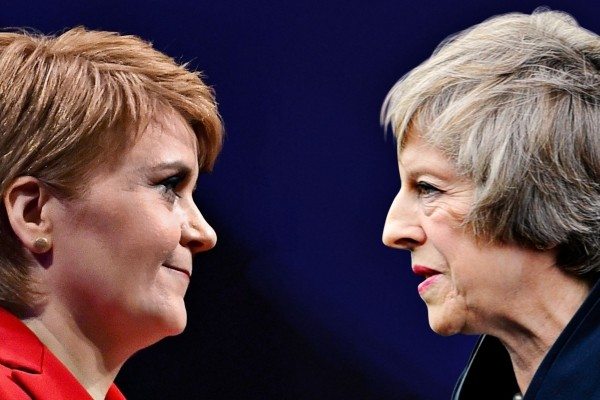In an attempt to keep Scotland in the European Union, Scotland’s government announced that it will soon introduce a draft bill for a second referendum on independence from the UK.
Scotland’s First Minister Nicola Sturgeon was met with a standing ovation when she made the announcement during a Scottish National Party (SNP) conference on Thursday.
“If you think for one single second that I’m not serious about doing what it takes to protect Scotland’s interests, then think again,” she said.
Sturgeon’s remarks were in response to British Prime Minister Theresa May, who has made it clear that she will complete the Brexit process by 2019 and that Scotland has no veto over it.
Although nearly 52 percent of Britons opted to leave the block during the June 23 referendum, some 62 percent of the Scottish people voted against the decision.
“If you can’t – or won’t – allow us to protect our interests within the UK, then Scotland will have the right to decide, afresh, if it wants to take a different path,” Sturgeon said, accusing the Tories of attempting to “hijack” the referendum’s result.
“They are using it [Brexit] as license for the xenophobia that has long lain under the surface – but which is now in full view,” Sturgeon said.
“They are holding it up as cover for a hard Brexit that they have no mandate for – but which they are determined to impose, regardless of the ruinous consequences,” she added.
Experts warn that in case of a hard Brexit, the UK may lose its preferential access to the EU’s single market and suffer from soured relations with other EU members.
According to a draft government paper, the UK’s economic output could fall up to 9.5 percent if the country leaves the single market.
The leaked document also maintains that Britain could lose up to £66 billion ($81 billion) a year in gross domestic product (GDP) and lose almost a tenth of its tax revenue with a tough exit.
Brexit has revitalized Scottish hopes for secession, two years after the first independence referendum on September 18, 2014, where 55 percent of the voters opposed the idea.







Leave a Comment